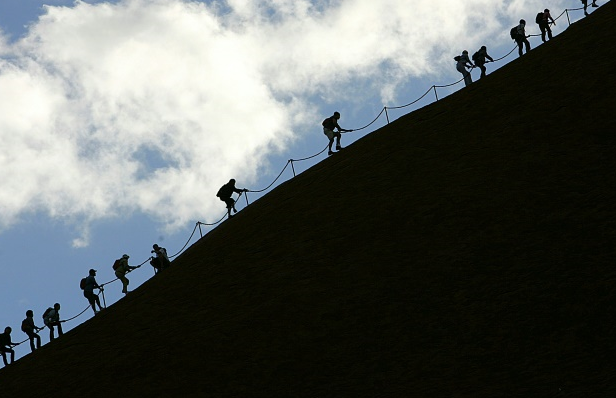×
The Standard e-Paper
Stay Informed, Even Offline

Hundreds of tourists flocked one last time Friday to the site of Uluru, a famous rock formation in the heart of the Australian desert, on the eve of the ban on its ascent.